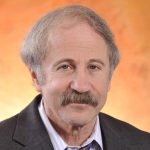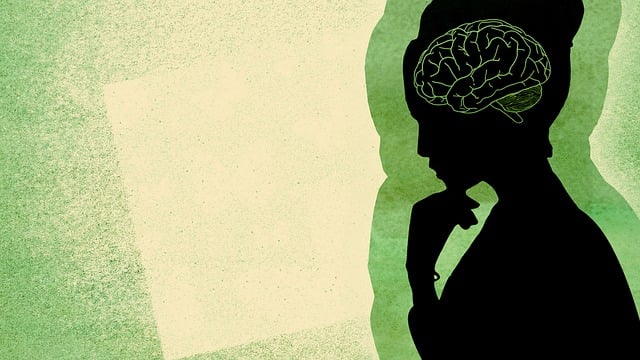Mental Illness: Hyperliberalism Run Amuck with Skeptics No Longer in Sight
Most of the public’s views of liberalism and conservatism can be inferred from who they elect to public office. If Republicans dominate, it is generally assumed that conservatives and right-wing politics are on the march; if Democrats or progressive left-wing parties (such as the Green Party) gain power, the opposite is surmised: liberals and progressives are taking over.
Conservative George F. Will has recently written a paradoxical column titled “The Trump Administration is Pure Progressivism in Action,” concluding that government-centric and executive-centric decision-making controls the current presidency and Republican policies.
Colleagues and I have written for decades on the widespread acceptance of the perspectives of psychiatry and psychology and how such starting points have provided the left in our country excuses for bad and illegal behavior. This alibi factory, they and I have argued, is used to justify bad behavior, such as through the insanity pleas and diversionary verdicts that suffuse criminal and civil law.
The change in the last decade or so is that conservatives were once generally skeptical of the explosion of helter-skelter mental illness diagnoses and psychiatric excusing, but no more.
Nowadays, liberals and conservatives, Democrats, Republicans and progressives also use “mental illness” as accusatory rhetoric. Liberals use it as both an exculpation and to inculpate, while conservatives use the language mostly to charge gross irresponsibility.
Confirming this consensual rebirth of mental illness as Democratic self-pity and Republican reproachful rhetoric are reactions to data gleaned from Tufts University’s 2022 Cooperative Election Study which found that liberal voters by an overwhelming ratio now believe that their “mental health” is poor (45%) in contrast to the self-perceptions of conservatives (19%). With no skepticism regarding these self-diagnoses whatsoever, the media have been reporting this nonstop for days now.
I have written on the rhetoric of psychology and psychiatry for decades, but others and my efforts to pursue and promote psychiatrist Thomas Szasz’s criticism of “mental illness,” which he called a myth, have lost significant traction since his death over a decade ago.
The claim by ideological and political opponents that their adversaries are “mentally ill” is so frequent that it is difficult to go a day without hearing charges that mental illness has infested a large number of the population. Estimates by the helping professions of those who suffer from mental illness have gone from 10% decades ago to over 50% and more currently. (This is independent of brain disease, undisputed, of course, by any knowledgeable citizen since the brain, as Szasz repeatedly pointed out, unlike the mind, is an organ.)
Today, claims of discoveries of the “scourge” of mental illness are ubiquitous, from casual conversation to lengthy articles in The Washington Post “Health” section to other newspapers and media everywhere.
I have recently written about the plummeting of Meet the Press — which years ago was the news analysis show — under its most recent hosts, Chuck Todd and Kristen Welker.
Almost 2 weeks ago (May 25, 2025), I watched Meet the Press, and my worst fears were realized, as the show tackled for its full hour the allegedly newly troubled psychology of Americans.
I did not anticipate any skepticism of mental health commonplaces, and I wasn’t surprised, but I was taken aback at the lack of any journalistic skepticism whatsoever.
It was an hour of psychobabble ostensibly about the alleged explosion and epidemic of unhappiness.
A brief summary of the show:
Good contribution: recommendation of limiting children’s access to social media until they are 16.
Devastatingly weak contributions from show: psychobabbling from beginning until end…more and more Americans children need psychiatric help…hardly a mention of the importance of families and NO mention of the epidemic of single-parent families.
”Happiness Expert“ Arthur Brooks’ formula for happiness as articulated on the show: Three components: “enjoyment,” “satisfaction,” and establishing meaning in life…utterly tautological and strategically worthless in a world of conflict.
Major guest: Patrick Kennedy (“Profiles in Mental Health Courage”) whose psychologically screwed-up family meant to MTP that he is the word on advising youth.
Kristen Welker moderated obsequiously — just appalling, particularly given her panel of psychologists who sported not a word of dissent from the perceptions of the rampant pathological unhappiness and/or mental illness infesting anew our country.
And, finally, what ill-timing by MTP, to ignore the week of the height of anti-Semitic terrorism (most recently validated by the cowardly anti-Semitic attack in Colorado against older Jewish protesters’ trying to highlight the hostages taken and still held by Hamas) in Washington and the continuing through this day (June 6) of collegiate anti-Semitism at Harvard, Columbia and elsewhere.
The increase of psychological pathologies is largely a self-fulfilling prophecy, created by the arbitrary, self-serving observations of those in the “helping professions.” The more there are psychological problems in our society, the more the need for psychologists, psychiatrists and social workers — and therapy and counseling.
In a world wherein toughness is required, there are endless sources that benefit from its absence. These destructive messages bemoaning all of this new unhappiness are themselves a problem, along with the missing parents unavailable to help children dealing with malign sources.
If opinion molders must deal with people proclaiming this “discovery” of unhappiness, at least press them with questions, in which serious journalists and iconoclasts used to specialize.

Richard E. Vatz https://wp.towson.edu/vatz/ is a Distinguished Professor Emeritus of political rhetoric at Towson University and author of The Only Authentic of Persuasion: the Agenda-Spin Model (Bookwrights House, 2024) and over 200 other works, essays, lectures, and op-eds. He is the benefactor of the Richard E. Vatz Best Debater Award at Towson. The Van Bokkelen Auditorium at Towson University has been named after him.

